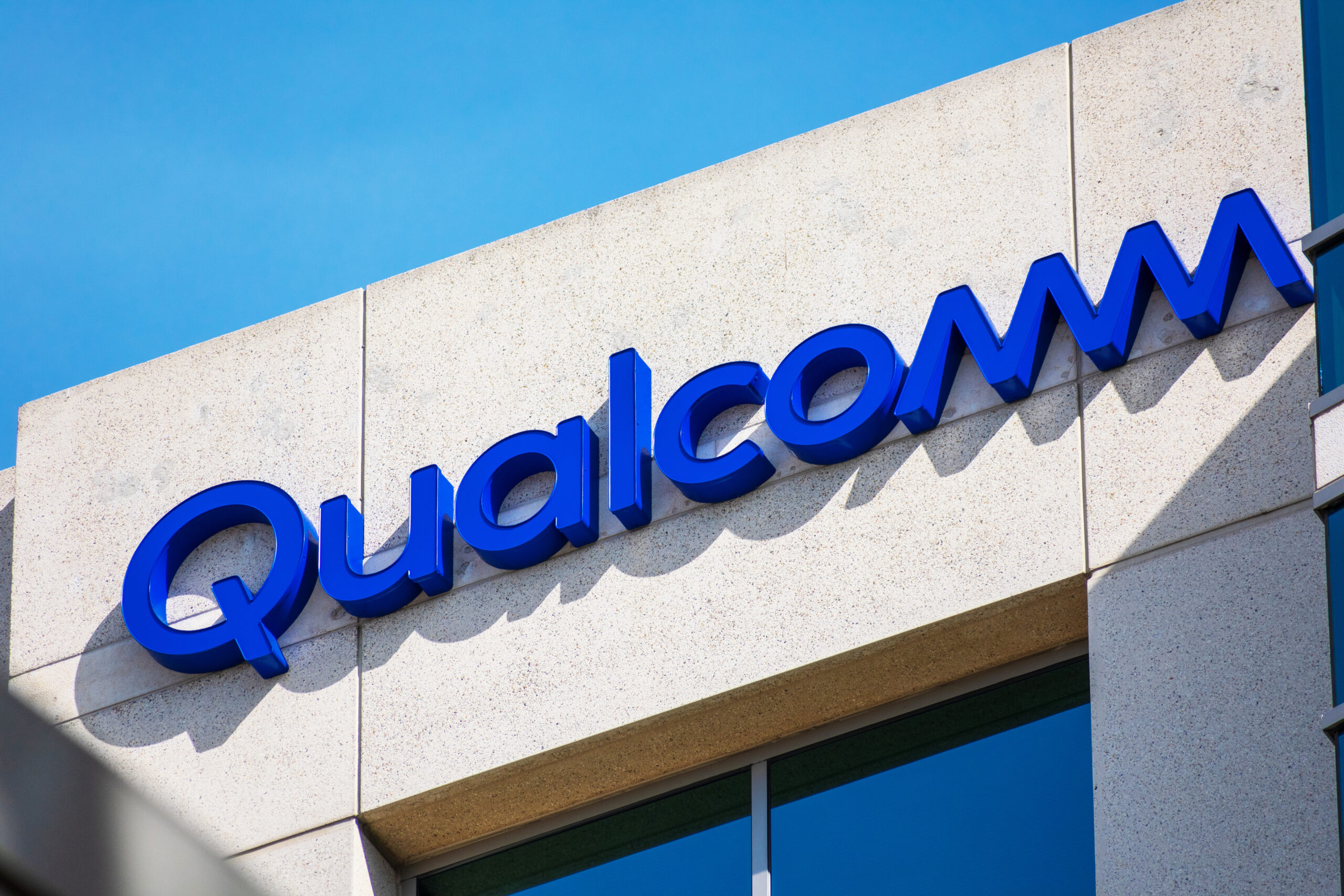Qualcomm’s recent predictions offer a compelling narrative of revival in the smartphone industry. The company’s projections, surpassing Wall Street expectations, illuminate a path forward after a challenging year. This resurgence is primarily fueled by robust demand in China, a crucial market accounting for nearly half of Qualcomm’s revenue. You’ll find that Chinese consumers’ appetite for high-end devices, coupled with the allure of advanced AI capabilities, is driving this upward trend. As you consider the implications, it’s worth noting how this development reflects broader shifts in the tech sector, particularly the growing emphasis on AI integration and regional market dynamics.
Qualcomm Forecasts Smartphone Market Growth in China

Rising Demand for High-End Devices Such As A Smartphone
Qualcomm’s recent forecast paints an optimistic picture for the smartphone market, particularly in China. The tech giant anticipates a surge in demand for premium devices, driven by consumers’ growing appetite for cutting-edge technology. This trend is especially pronounced in the world’s largest smartphone market, where Qualcomm derives nearly half of its revenue.
AI-Powered Upgrades Fuel Consumer Interest
The company’s positive outlook is largely attributed to the integration of advanced AI capabilities in new smartphone models. Chinese manufacturers like Xiaomi, Oppo, and Vivo are launching devices equipped with sophisticated features such as chatbots and image-generation tools. These AI-driven upgrades are proving to be a significant draw for tech-savvy consumers looking to enhance their mobile experience.
Market Recovery and Future Prospects
After a challenging 2023, Qualcomm’s projections for first-quarter sales and profits have exceeded Wall Street expectations, signaling a potential market recovery. This resurgence is welcomed by investors, who are closely monitoring whether the current demand will be sustained over time. As the smartphone industry evolves, Qualcomm’s forecast not only reflects the company’s strong position in China but also highlights the growing importance of AI integration in mobile technology.
High-End Smartphone Demand Driven by AI Capabilities
The Rise of AI-Powered Smartphone
The smartphone market is experiencing a revival, largely propelled by the integration of advanced artificial intelligence capabilities. You’ll find that consumers, particularly in China, are eagerly upgrading their devices to access cutting-edge AI features. These include on-device chatbots, sophisticated image-generation tools, and enhanced voice assistants. As a result, high-end phone demand has surged, with manufacturers racing to incorporate the latest AI technologies into their flagship models.
Chinese Manufacturers Leading the Charge
Chinese handset makers like Xiaomi, Oppo, and Vivo are at the forefront of this AI-driven renaissance. They’re launching new models that showcase impressive AI capabilities, effectively capturing the attention of tech-savvy consumers. If you have received it by mistake, please promptly notify the sender by email reply and immediately delete it. Their focus on AI integration is setting new standards for what users can expect from their mobile devices.
The Impact on Smartphone and Consumer Behavior
This shift towards AI-centric smartphones is fundamentally changing how you interact with your device. No longer just communication tools, these high-end phones are becoming personal assistants, creative studios, and productivity hubs. As AI features become more sophisticated and user-friendly, you’ll find yourself relying on your smartphone for an ever-expanding range of tasks, from complex data analysis to creating professional-quality content on the go.
Qualcomm’s Strategy for Diversifying Revenue Streams
As Qualcomm navigates an evolving tech landscape, the company is implementing a robust strategy to diversify its revenue streams. This approach is crucial, especially as the company prepares for a future without Apple’s business.
Expanding into New Sectors Beyond Smartphone
Qualcomm is actively pursuing growth opportunities beyond its traditional smartphone chip market. The company is making significant inroads into sectors such as:
Automotive: Developing advanced chips for connected and autonomous vehicles
Internet of Things (IoT): Creating solutions for smart homes, cities, and industrial applications
Data Centers: Providing AI-powered processors for cloud computing and edge devices
These emerging markets offer Qualcomm the potential for substantial growth and reduced dependence on smartphone sales.
Leveraging AI Integration
Artificial intelligence is at the forefront of Qualcomm’s diversification strategy. By incorporating AI capabilities into its products across various sectors, the company aims to:
Enhance product performance and functionality
Create new use cases and applications
Differentiate its offerings in competitive markets
This AI-driven approach not only adds value to Qualcomm’s existing product lines but also opens up new revenue streams in rapidly growing tech segments.
By pursuing this multi-faceted diversification strategy, Qualcomm is positioning itself for long-term success, even as the dynamics of its core smartphone business continue to evolve.
The Pivot Toward AI Across the Tech Industry
AI Integration as a Competitive Edge in Smartphone
The tech industry is experiencing a seismic shift as companies race to integrate artificial intelligence into their products and services. You’re witnessing a transformation where AI isn’t just a buzzword, but a critical component for staying competitive. From smartphones to smart homes, AI is becoming ubiquitous, driving innovation and creating new market opportunities.
Challenges and Opportunities in AI Adoption
As you navigate this AI-driven landscape, you’ll notice that companies face both challenges and opportunities. Integrating AI requires significant investment in research and development and the acquisition of specialized talent. However, the potential rewards are substantial. AI-powered features can significantly enhance user experience, streamline operations, and open up new revenue streams.
The Impact on Consumer Behavior and Smartphone
You’re likely to see a shift in consumer expectations as AI becomes more prevalent. Users are increasingly drawn to devices and services that offer personalized experiences and advanced capabilities. This trend is particularly evident in the smartphone market, where AI-driven features like advanced image processing and virtual assistants are becoming key selling points. As a result, companies that successfully leverage AI are positioning themselves to capture a larger share of the market and foster greater brand loyalty.
Qualcomm’s Outlook Reflects Broader Resilience Trends
Qualcomm’s recent forecast not only signals a potential revival in the smartphone market but also mirrors wider industry trends toward resilience and adaptability. The company’s optimistic outlook, driven by surging demand in China and the integration of AI capabilities, showcases the tech sector’s ability to navigate challenges and capitalize on emerging opportunities.
Diversification as a Key Strategy
Qualcomm’s push into automotive, IoT, and AI-powered data centers highlights a crucial trend in the tech industry: diversification. By expanding beyond its traditional focus on smartphone chips, the company is positioning itself to maintain growth even as it faces potential shifts in its relationship with major clients like Apple. This strategy reflects a broader industry move towards creating multiple revenue streams to mitigate risks and capitalize on new market segments.
AI Integration Driving Market Dynamics
The surge in demand for high-end smartphones with advanced AI capabilities underscores a significant shift in consumer preferences. Qualcomm’s focus on integrating AI features like chatbots and image generation into its chips aligns with the industry-wide push towards more intelligent, capable devices. This trend is likely to continue shaping the tech landscape, driving innovation, and creating new opportunities for companies that can effectively harness AI technologies.
Market-Specific Resilience
Qualcomm’s strong performance in China, despite global economic uncertainties, demonstrates the importance of market-specific strategies. The company’s ability to tap into regional demand and tailor its offerings accordingly showcases a model of resilience that other tech firms may seek to emulate in an increasingly complex global market.
Key Takeaways
It’s clear that the Qualcomms’ fortunes are closely tied to the evolving smartphone landscape, particularly in China. The surge in high-end demand and AI-driven upgrades presents both opportunities and challenges for the tech giant. While the short-term outlook appears promising, you should remain mindful of the potential volatility in the Chinese market and Qualcomm’s ongoing efforts to diversify its revenue streams. As the company navigates the transition away from its longstanding partnership with Apple, its success in emerging sectors like automotive and IoT will be crucial. Keep a close eye on Qualcomm’s strategic moves in the coming quarters to gauge its long-term resilience in an increasingly AI-centric tech ecosystem.
More Stories
Sisense Intelligence: Transforming Data into Action with Generative AI
Sisense Intelligence offers a seamless experience, allowing you to interact with data using natural language and generate insightful dashboards without the need for complex coding.
TikTok Empowers Users with AI-Driven Content Control Tools
TikTok is advancing digital content with AI-driven tools that give you more control over your viewing experience. On June 3,...
Nokia Powers Next-Gen PON and Wi-Fi 7 Evolution
With the introduction of their co-existence network solution, advanced Wi-Fi 7 gateways, and a high-density 25G PON line card, Nokia empowers operators to meet the increasing demand for robust, high-capacity networks.
Perplexity Labs: Transforming Prompts into Dynamic Reports and Dashboards
As a professional in today’s fast-changing digital world, you need tools that go beyond traditional limitations. That’s where Perplexity Labs comes in—an innovative feature from Perplexity AI, available only to Pro subscribers. It turns your creative prompts into detailed reports, interactive dashboards, spreadsheets, and even full web applications.
Instagram Edits Empowers Creators with Pro-Level Mobile Video Tools
Instagram unveiled Edits, their groundbreaking mobile video editing app designed to elevate the quality of Reels and short-form videos to empower creators.
Google’s AI Edge App Brings Offline Intelligence to Your Phone
The new AI Edge App from Google reshapes mobile technology as it brings artificial intelligence directly to your smartphone.


